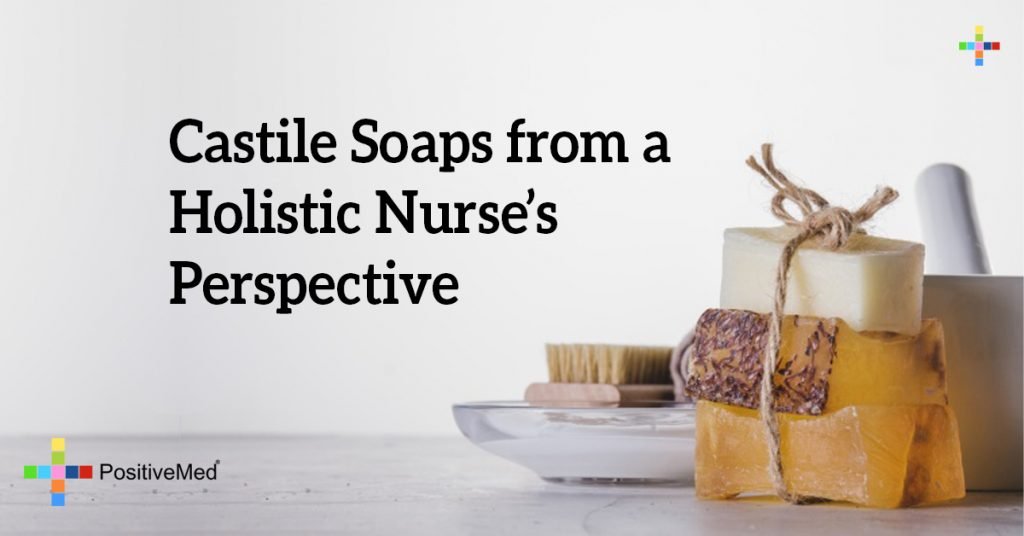
Sensitive or over-dried skin? Castile Soap for the face and body gently cleanses while keeping your skin healthy!
Washing your hands is one of the first skills mastered in nursing school; sounds easy right? How about if you are required to wash your hands 20-30 times per day (after each patient)? There are five steps to this process and none include reading the label of the soap that is being used. If you’re anything like me, washing your hands an extraordinary amount per day will leave to dehydrated, itchy skin. Over the years health care workers and the general population have had an increase in the incidence of hand pain as well. Conventional soaps are one of the main culprits as they have been found to strip the oil and water off the surface of your skin while containing neurotoxins disguised as fragrances and artificial colors. It became a personal duty to find a safer and natural soap that could be used frequently on a daily basis while maintaining optimal skin health.

Dehydrated skin
What are Castile Soaps?
The term “Castile Soap” originates from the Castile Region of Spain, where the soaps started off strictly made from Olive Oil. When European soap-making started during the 12th century, it was localized to the Mediterranean area, which slowly started spreading with the arrival of Muslim soap makers to Spain and Italy. Thanks to their passionate dedication, European production came into full life. Numerous cities and provinces in Spain and Italy quickly became export centers for European-made soaps. This included Malaga, Carthagene, Castile, Alicante, Savone, Genoa, Naples, Bologna and Venice. Among all of these, one managed to distinguish itself by consistently providing pristine quality and ability to clean better than others. This was the Spanish Kingdom of Castile.
Ever since, Castile Soaps have evolved to refer to any soap made from the saponification of vegetable oils, which were found in abundance through the Spanish cities. Compared to their non-organic counterparts, Castile Soaps are much gentler on the skin. As a nurse, any item with multiple purposes makes multitasking just that much simpler. If it cleans and is safe for the environment, it sounds like a winner!
Your everyday grocery store non-organic soap
Several anti-bacterial soaps include Triclosan, which is an antibacterial chemical found in many consumer products. Triclosan is nearly ubiquitous in liquid hand soap. Unfortunately, this ingredient is linked to liver and inhalation toxicity and may disrupt thyroid function (even with low levels of the ingredient). Anti-bacterial soaps do kill bacteria and the word “anti-bacterial” may look great printed in front of a soap packaging, but an FDA advisory committee found that the use of antibacterial soaps provides no benefits over plain soap and water.
Triclosan Ingredients found in non-organic soaps

Sodium Laureth Sulfate, or sodium lauryl ether sulfate, is another culprit that may also be found in non-organic soaps. This ingredient is un-natural, pollutes groundwater, emits toxins when heated, and irritates your skin (especially if washing several times in a short period). The manufacturing process of soaps containing sodium lauryl sulfate is highly polluting.
Castile Soaps, on the other hand, do not contain harmful anti-bacterial ingredients, cleaning agents or neurotoxins disguised as fragrances and artificial colors. Even though all Castile Soaps contain olive oil, they may also contain coconut oils and a blend of oils, water, and lye. They are an eco-friendly, non-toxic and biodegradable product that can be used in multiple ways (can even be used to bathe your pet).

Typical Castile Soap Ingredients, The switch to a healthier solution
I decided to try out an organic Castile Soap bar! If you like a smooth feeling after your cleansing experience, Castile Soaps may not be the product for you. However, if you like the exfoliating and refreshingly natural clean feeling, as I do, then Castile Soaps are an excellent and natural solution. In addition to the refreshing feeling, they typically do not have an overpowering scent (no extra additives). It just smells pleasant and gets you clean without overdriving your hands. In the end, it rinses away completely and leaves your skin feeling fantastic! Have you tried any Castile Soaps or organic soaps before? If so, let us know what you think.

Castile Soap
PROS:
• Perfect for sensitive skin.
• Smells and feels fresh.
• From chapped, cracked and dry skin to velvet smooth skin.
• Naturally eliminates odors off the skin.
CONS:
• Slightly more expensive than traditional soaps.
• Not found everywhere.
 Audrey Lefebvre has been practicing holistic healthcare in the state of Florida for the past four years. She is well involved in natural medicine, mind, body and spirit care. She currently assists with patient care in the offices of Dr. Ron N. Shemesh, MD and is a featured blogger and presenter for Castile Soap Bar™.
Audrey Lefebvre has been practicing holistic healthcare in the state of Florida for the past four years. She is well involved in natural medicine, mind, body and spirit care. She currently assists with patient care in the offices of Dr. Ron N. Shemesh, MD and is a featured blogger and presenter for Castile Soap Bar™.
To learn more about her, holistic living, and Castile Soaps, please visit https://castilesoap.bar/





